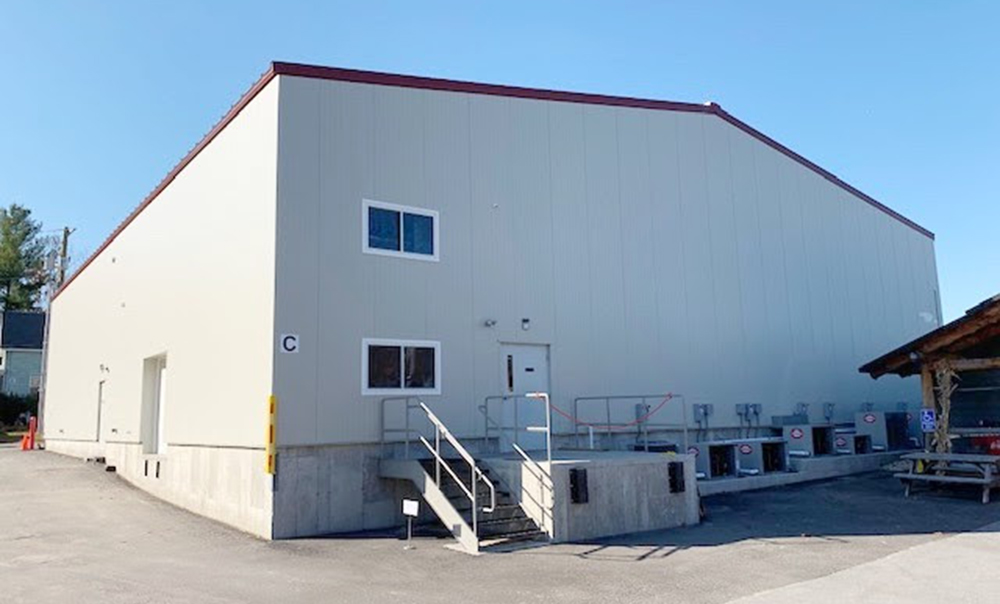Langley Construction completes $1.5 million Lemay and Sons Slaughter House

Goffstown, NH Langley Construction has completed its latest project: Lemay and Sons Slaughter House. The construction cost of this project was $1.5 million and the architect was Denis Mires.
In 2017, Lemay and Sons Slaughter House burnt to the ground, leaving the family and their 18 employees scrambling to keep their meat processing plant in business. The slaughterhouse and retail store has been in town since 1963 and is one of only four slaughterhouses in the state. Firefighters were able to save the retail store, which sustained minimal damage. The meat processing plant operated in a temporary facility during the construction of the new 7,500 s/f building that was completed this summer.
Langley is known for their expertise in building unique and specialized buildings for their various clients, and fitting out a meat processing plant was an interesting addition to their portfolio of work. Matthew Doucet was the project manager of the project and reports that the building included specialized refrigeration and extensive cleaning and sanitizing equipment for the meat processing facility.
It included a processing area featuring a conveyor system and an aging cooler capable of holding 80,000 pounds of aging beef.
Langley Construction is known for their on-time, on-budget commercial construction projects for a variety of projects, such as storage facilities, veterinary clinics, and car dealerships.
Atlantic Property Management expands facilities maintenance platform: Assigned two new facility management contracts in RI


Connecticut’s Transfer Act will expire in 2026. What should property owners do now? - by Samuel Haydock

Unlocking value for commercial real estate: Solar solutions for a changing market - by Claire Broido Johnson

New Quonset pier supports small businesses and economic growth - by Steven J. King


 (1).png)







 (1).png)
